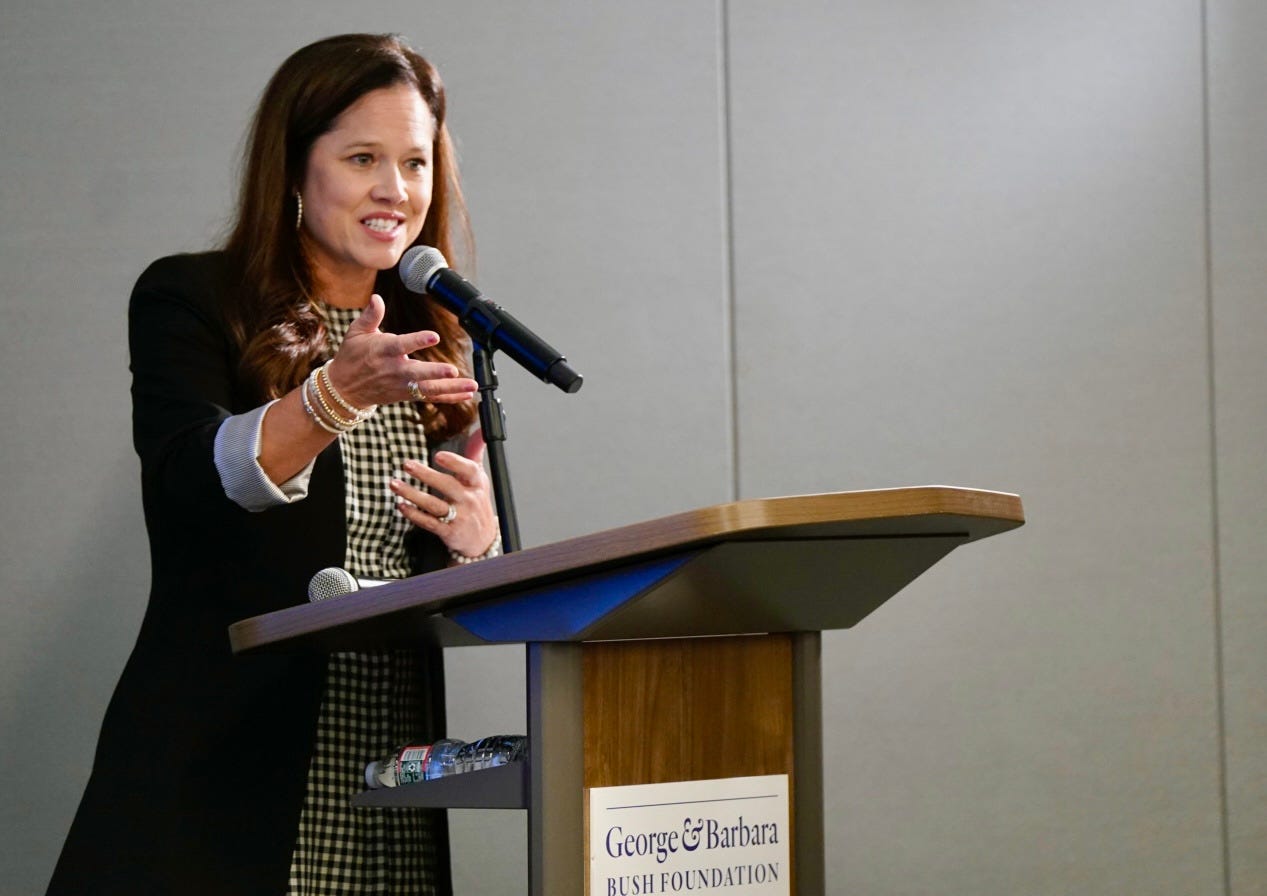Barbara Bush’s Family Literacy Mission to Continue in New Initiative
The George & Barbara Bush Foundation announces a new fund that streamlines grant support to community-based family literacy programs nationwide.

After more than 35 years, the Barbara Bush Foundation for Family Literacy, the nonprofit established by the former first lady that has raised and provided more than $130 million in support to literacy programs in every state including the District of Columbia, is coming to a close.
But, Mrs. Bush’s literacy mission continues.
The announcement was made Wednesday evening during a reception at Texas A&M University’s Bush School for Government & Public Service in Washington, D.C., where Alice Gonzalez Yates, CEO of the George & Barbara Bush Foundation, unveiled the launch of the Barbara Bush Fund for Family Li…



